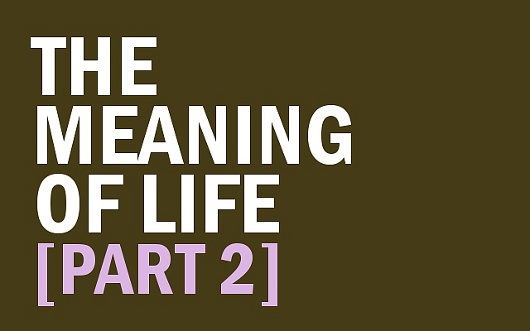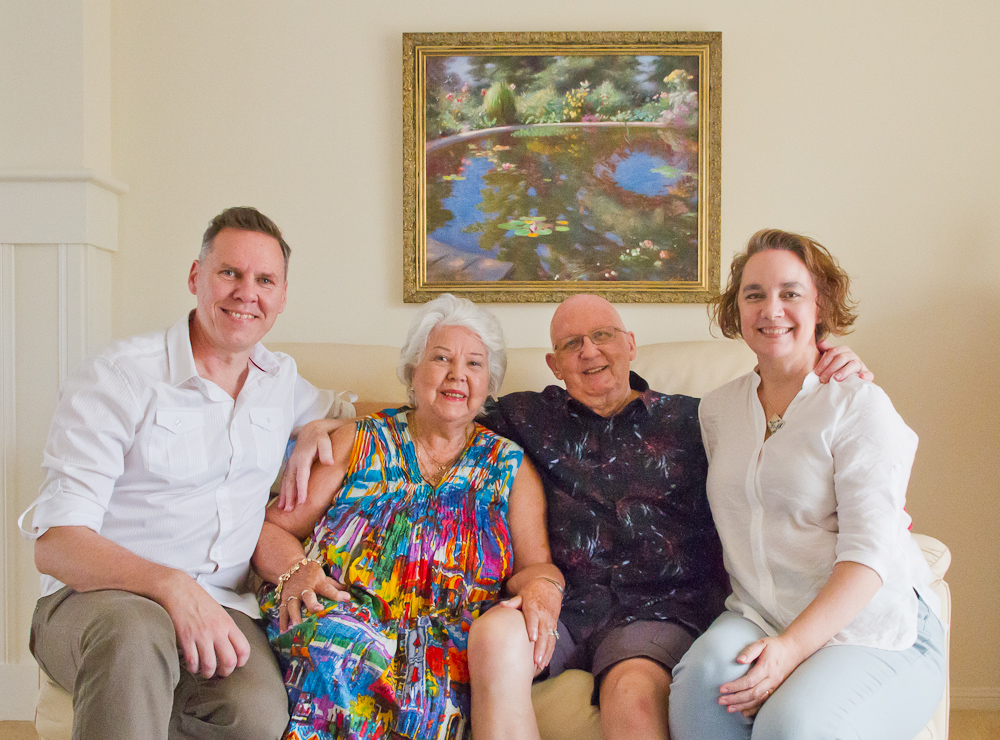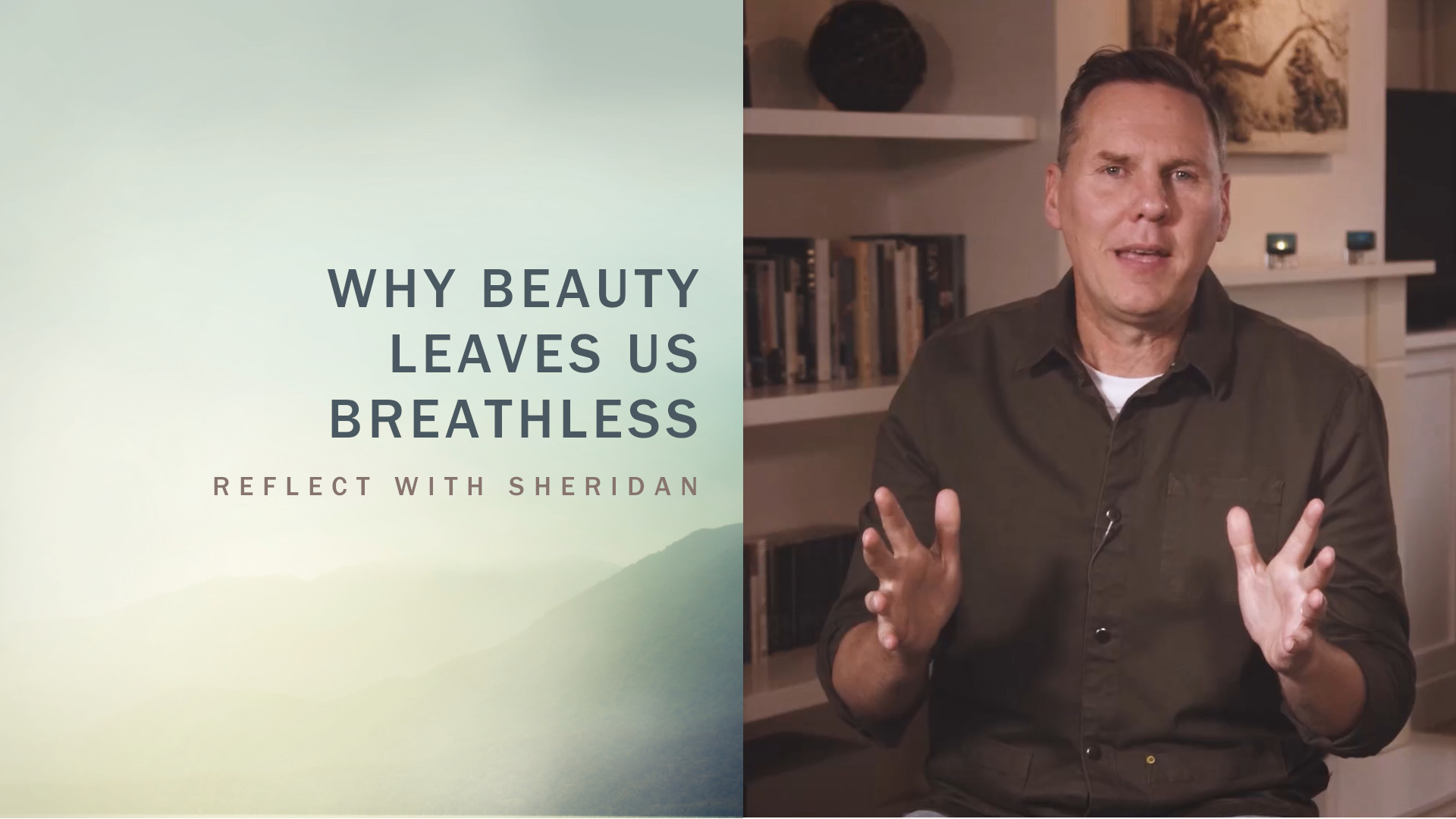The Meaning of Life? Here’s a 5th Option
In my previous post on the meaning of life I suggested that western popular culture—through its films, books and stories—offers four main answers to the question of life’s meaning:
- Life is about living in harmony with ‘God’
- Life is a joke: it has no meaning
- Life’s meaning is whatever you make it
- The meaning of life is a mystery
Some of these answers have merit. Each provokes further questions. In this post I want to explore a 5th option that potentially fills the holes in the answers above.
***
As my original article on the search for meaning in Christianity magazine makes clear, it is from the Christian perspective that I approach this topic. But what is a distinctly Christian answer to the question of life’s meaning? Is it ‘To worship God’? or ‘To love the Lord your God and love others as you love yourself’? Those are good answers, but how does worshipping God or loving others actually make life meaningful? Such phrases could be read as religious ‘duty’ by some, rather than the secret to fulfilment.
Let me take a step back. Scanning Scripture’s full divine-human drama, I have a conviction that God gives our lives meaning in at least three ways:
First, God invites us into his life
God is an abundant bounty of spiritual life. We were created to have this life inhabiting us, the way God once ‘inhabited’ the Jewish temple (see 1 Corinthians 6:19). But with humankind’s original rebellion, we severed this source of life. The temple of our souls has now lost its God, leaving a vacant space at the centre of our hearts. The New Testament uses two Greek words for ‘life’: bios, meaning natural created life, and zoé, meaning God’s eternal supernatural life. We can have bios but not zoé. We can be biologically alive but spiritually dead.
But then a man came forth from Galilee. ‘In him was zoé,’ it was said of him. ‘I have come that they may have zoé,’ he said of himself. He promised to bring the Father to dwell within us. Jesus came to bring the indwelling God back into the temple of our hearts.
And with God’s eternal, supernatural life within us, the ordinary can become splendorous. That’s what the 17th-century monk Brother Lawrence discovered, as described in his spiritual classic Practice of the Presence of God. That’s what I discovered when I came to faith, having searched for life elsewhere.
Second, God invites us into his story
This story begins with a God who creates a good world teeming with creatures, flowers and light, with his image-bearing humans as his co-workers. It continues with a great rebellion unleashing evil, pain, frustration and disorder into the world. A recovery mission is launched, God calling the nation of Israel to be his light to the world, a mission which climaxes in God visiting earth himself, accepting our taunts, ridicule and crucifixion, then rising from death to offer forgiveness of sins and restoration of life. The story ends with this restoration complete—in a new world of fulfilled longings, healed wounds, radiant beauty and restored harmony (see Isaiah 35; 65:17–25; Revelation 21–22).
This story gives us context, and context gives us meaning. The order and beauty of the world make sense within this story, as does our longing for love and our desire to find a meaningful role in life. They are part of God’s creational design. The horrors of war, famine, greed and corruption are given some context. They are intruders and never meant to be here. Our deep desire to see wrongs righted and evil cease makes sense—and is graced with hope. This world is not as it should be, but one day will be under God’s restorative work through Jesus.
Third, God invites us into his activity
God is on the move, pushing this story towards its conclusion—inviting people into his life, transforming them and, through them, society. We then become God’s ‘apprentices in eternal living’ as Dallas Willard puts it—learning to be responsive to God as he works in us ‘to will and to act according to his good purpose’.
God gives us a special part to play within his unfolding story—a role, a calling, a mission, an assignment. His life within us provides power for such tasks; his spiritual gifts give us ability. Through us he speaks, heals, comforts, reconciles, encourages, leads, teaches. Through us he feeds, clothes, plants, warns, forgives, protests, loves. It is an awesome thing to participate in God’s work. Could a finer way to meaning and purpose exist?
The 5th Option
So with this in mind, let me suggest a revised answer to life’s ultimate question: The meaning of life is to live with God—a God who invites us into his life, his story and his activity. This option answers some of the questions raised of the other four options:
1. Life is about living in harmony with ‘God’
- Which God? A personal God who cares about our well-being.
- Does this God make any sense of suffering? Yes. Suffering is an intruder, will one day be eradicated, and can now be healed by God or redeemed into something good.
- How does one live in harmony with this deity? Through surrender.
2. Life is a joke: it has no meaning
- Why do we long for meaning so much / Why do happiness studies all seem to say the same thing? Because we were built to be in relationship, to contribute to the world, to serve others in love, and live a spiritually fulfilled life with God and others.
3. Life’s meaning is whatever you make it
- What if I lost my job, partner, family, health? You would still be God’s child, safe in his hands. Your present would still have hope because your future would be secure. A new you awaits.
4. The meaning of life is a mystery
- Life is too big to fully comprehend it, but perhaps our essential reason for living isn’t as mysterious as once thought.
***
The meaning of life is to live with God—a God who invites us into his life (in an intimate, responsive relationship), his story (which gives us context and hope) and his activity (a personalised mission to serve others in love).
Question: How does this answer fit for you? What needs further clarification? Tell me now





